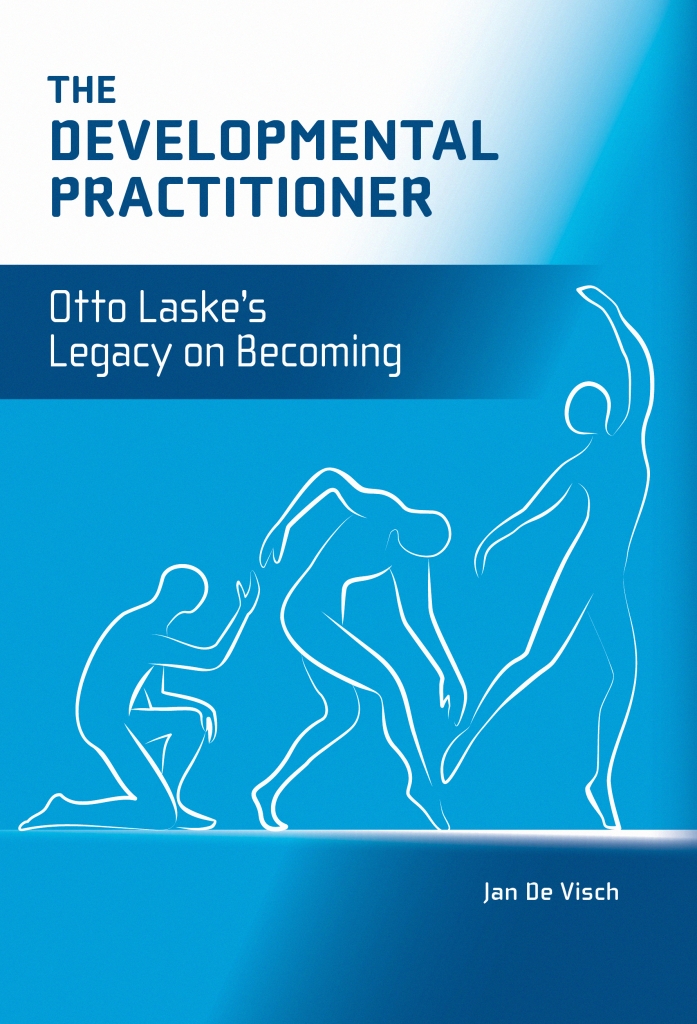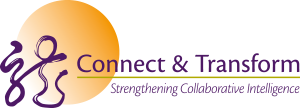The Developmental Practitioner: Otto Laske’s Legacy on Becoming

The book is available in bookshops and online retail platforms. However, you can order a signed copy of ‘The Developmental Practitioner’ during the launch period (only available till January 30th 2026). To pay, copy-paste the following link in your browser and it will direct you to the secured pay-page.
(1) What is this book about?
The Developmental Practitioner – Otto Laske’s Legacy on Becoming is both a synthesis and an evolution of a lifelong intellectual project. The book explores the foundations, practice, and future of developmental work through the lens of Otto Laske’s Constructive Developmental Framework (CDF).
It provides a clear, accessible, and practitioner-oriented articulation of CDF’s three interdependent strands—social-emotional meaning-making, cognitive sense-making, and need/press—while demonstrating how these strands inform the real practice of developmental coaching, consulting, and organizational transformation.
At its core, the book shows how developmental practice enables individuals, teams, and organizations to move from reactive functioning to reflective, dialogical, and systemic becoming.
(2) Who is it written for?
This book is for practitioners who work at the intersection of human development and organizational life:
-
Developmental coaches and facilitators
-
Organizational consultants and leaders
-
Practitioners trained in CDF or related developmental frameworks
-
Students and colleagues of Otto Laske who want to deepen their understanding of his legacy
-
Professionals who sense that today’s complexity requires more than tools—it requires a developmental stance
It is also written for those who have used pieces of CDF but have never had access to a comprehensive, integrated account of the framework and how to bring it alive in practice.
(3) Why did I write this book?
I wrote this book for two reasons.
First, to honor Otto Laske’s extraordinary contribution to the developmental field. His work is often referenced selectively or at a distance. I wanted to restore the full depth of his thinking—dialectical, systemic, and human—so that practitioners today can understand the lineage behind the tools and methods they use.
Second, I wanted to make developmental practice usable for practitioners navigating the complexity of modern organizations. Otto’s work is profound and sometimes demanding. By bringing together his theoretical foundations, practice-based examples, case studies, and organizational applications, I aimed to create a bridge between CDF’s intellectual richness and the real-world challenges practitioners face.
(4) What makes this book different?
Four qualities distinguish this book:
-
It is the first full-scale integration of Otto Laske’s intellectual biography, developmental methodology, and practical impact.
It brings together the historical evolution of his thinking with the operational detail of how CDF works. -
It presents CDF as a living practice—not a set of tools.
The book emphasizes dialectical listening, dialogical engagement, and systemic understanding as the heart of developmental work. -
It extends the framework into emerging domains.
Chapters on governance, AI-shaped sense-making, and dialogical organizations show how CDF can guide practice in environments Otto was beginning to explore. -
It is written for practitioners.
Throughout the book, readers will find guiding questions, illustrative cases, thought-form analyses, and reflective exercises that make the complex accessible without simplifying the essence.
(5) What is the added value of the book?
For practitioners, this book offers:
-
Clarity in understanding the full architecture of developmental practice
-
Confidence in applying CDF in dialogues, assessments, and organizational interventions
-
Continuity with the intellectual lineage of Otto Laske, ensuring his work remains alive and evolving
-
A practical roadmap for working developmentally in a world shaped by uncertainty, complexity, and AI
-
A coherent narrative that integrates theory, method, and practice in a way that has not previously been available
Ultimately, the added value lies in helping practitioners see development systemically, listen dialectically, and work in ways that support the becoming of individuals, teams, and organizations.
(6) You don’t have time to read the book?
That’s completely fine—and the book is written with that reality in mind.
You can engage with it at multiple levels:
-
Every chapter begins with a clear orientation and ends with practical questions you can use immediately in your work.
-
The brief DTF guide in the annex, the timeline, and the case example allow you to grasp the essence of CDF and its practice without reading it cover to cover.
- And if nothing else, the opening sections—Otto’s Personal Note and Ursula Clidière’s Foreword—give you the spirit of the work in just a few pages.
In other words:
You don’t need time to read the whole book to benefit from it.
You only need the intention to work developmentally.
The book meets you where you are
A Review of Jan De Visch’s The Developmental Practitioner – Otto Laske’s Legacy on Becoming
For those of us who have been shaped—directly or indirectly—by Otto Laske’s teaching, writing, and developmental rigor, Jan De Visch’s The Developmental Practitioner offers something rare: a book that not only strengthens our practice but also rightfully restores Otto’s central place in the evolution of developmental thinking and methodology.
Rather than presenting CDF as a toolkit or a set of techniques, De Visch recognizes what Otto’s students have always known: CDF is an epistemology, a dialogical stance, and a disciplined way of engaging with human becoming.
A Work Deeply Rooted in Otto’s Intellectual Lineage
De Visch frames the entire book through the lens of Otto’s intellectual journey—from the Frankfurt School to Harvard, from music cognition to dialectics, from Basseches to Bhaskar. This gives the book a depth that many texts in adult development lack.
Those familiar with Otto’s triadic developmental approach will find it treated with the fidelity and seriousness it deserves:
- Social-emotional meaning-making, grounded in Kegan but developed methodologically by Laske
- Cognitive sense-making, articulated through the Dialectical Thought Form Framework
- Need/Press, the often-overlooked psychodynamic strand of CDF, which Otto integrated into a unified interpretation of adult development
De Visch’s careful explanation of the three strands as an interlocking architecture will feel deeply familiar to Otto’s students and offers a clarity that can support teaching, supervision, and advanced practice.
De Visch’s structure is methodical. The book begins by outlining the foundations of developmental theory, detailing how individuals construct meaning and how these constructions evolve. Subsequent chapters delve into the processes that facilitate or hinder developmental movement, with a focus on the practitioner’s role. Each section is punctuated by real-world case studies, reflective exercises, and practical tools that translate theory into practice.
Continuing Otto’s Dialogical Tradition
Otto’s work has always been grounded in dialogue—rigorous, compassionate, and dialectical. De Visch honors this tradition structurally and stylistically. The book includes:
- A Personal Note from Otto
- A Foreword by Ursula Clidière
- A historical timeline tracing Otto’s intellectual development
- Practical illustrations that reflect the way Otto worked with clients, students, and research partners
Many readers will recognize Otto’s voice, cadence, and intellectual concern in the way De Visch frames problems, questions assumptions, and encourages practitioners to think developmentally rather than apply developmental tools.
A recurring theme is the notion that practitioners must engage in their own developmental journeys to support others effectively. De Visch argues that self-awareness, reflexivity, and a willingness to confront one’s own assumptions are prerequisites for impactful practice. He encourages readers to engage in peer supervision, reflective journaling, and continuous learning. This focus on the practitioner’s inner work distinguishes the book from more technique-driven manuals and underscores the importance of authenticity in developmental work.
The book is a substantial contribution in its own right:
- Depth of theoretical integration: De Visch skillfully weaves together systems thinking, adult development, dialectics, and organizational learning—echoing Otto’s own interdisciplinary approach.
- Practical frameworks: The book offers guidance for reflective dialogue, assessment, thought form analysis, and case-based developmental interventions, making CDF’s insights accessible without diluting their complexity.
- Focus on the practitioner’s own development: A theme Otto championed throughout his life—the necessity of dialectical listening, self-reflexivity, and inner work—is central to De Visch’s argument.
Yet, what sets this book apart—and what Otto’s students will particularly appreciate—is the explicit recognition that all of this work stands on Otto’s shoulders.
A Necessary Corrective in the Field
Many of us have observed how often developmental practice references Otto obliquely, or borrows selectively from CDF without acknowledging its full structure or philosophical grounding. De Visch’s book acts as a corrective, re-establishing:
- The primacy of dialectical thinking in developmental practice
- The inseparability of the three strands of the CDF
- The understanding that developmental assessment is inseparable from developmental dialogue
- The historical and intellectual roots of the discipline
This alone makes the book invaluable to the CDF community and to those who want to preserve and extend Otto’s legacy.
The Developmental Practitioner promises to be highly influential among coaches, organizational consultants, and leaders interested in fostering long-term, sustainable growth. Its emphasis on vertical development resonates in an era marked by complexity, uncertainty, and the need for adaptive leadership. De Visch’s insistence that practitioners attend to both their own development and that of their clients or organizations positions the book as a vital resource for those committed to transformative change.
The book’s combination of rigorous theory and actionable practice makes it suitable for use in graduate education, professional development programs, and as a reference for ongoing coaching supervision. Its reflective exercises and case studies offer pathways for experiential learning, making the text accessible and engaging for a wide audience.
Carrying the Work Forward
De Visch does not merely restate Otto’s work—he extends it. The chapters on governance, organizational viability, dialogical intelligence, and AI-mediated sense-making bring Otto’s thinking into the conversations shaping today’s systems.
Students and colleagues will recognize Laske’s forward-looking stance in these expansions: development as systemic becoming, organizations as dialogical and ecological, practitioners as facilitators of collective intelligence.
These sections echo Otto’s long-standing insistence that developmental practice is not about individuals alone, but about the unfolding of human potential in social, organizational, and planetary contexts.
Conclusion
For Otto’s students and colleagues, The Developmental Practitioner offers both a tribute and a continuation—a work that honors Otto’s intellectual achievements, his commitment to rigorous dialogue, and his enduring impact on how we understand development.
It is a book that not only clarifies the lineage we stand in but also equips us to carry it forward with integrity.

